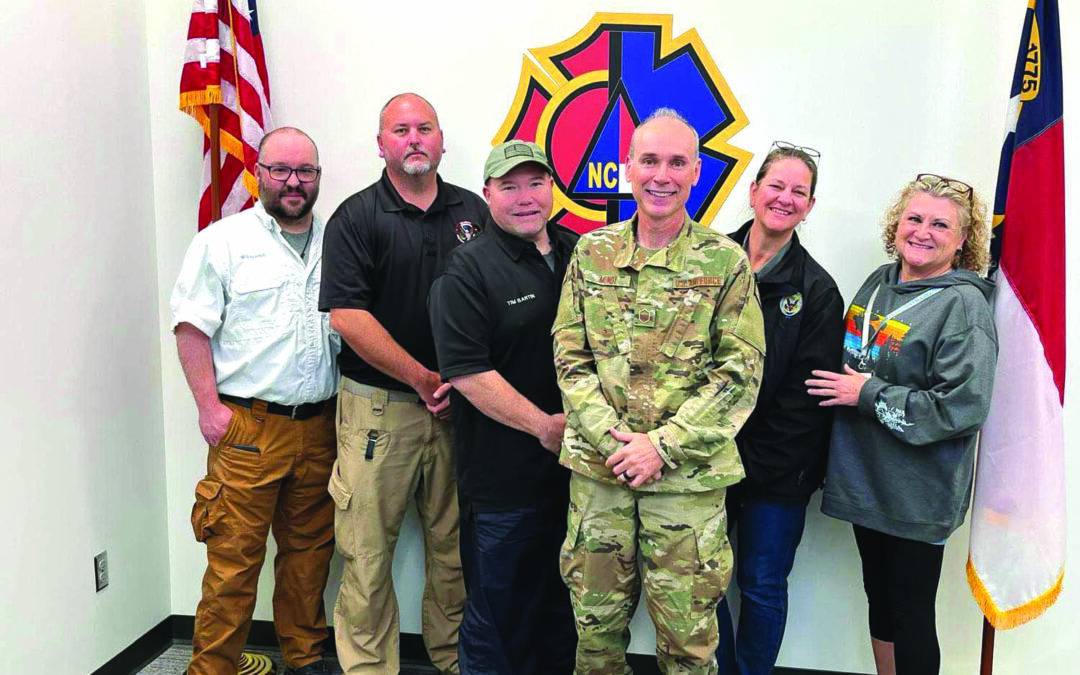BY MALLORIE MCCOY
FOR THE OBSERVER
LEE COUNTY — Authorities in North Carolina benefitted from the experience of Lee County Emergency Management Agency (EMA) Director Rita Smith, who traveled there to assist with the hurricane relief effort in Asheville after the community was destroyed in the aftermath of Hurricane Helene on Sept. 28.
Smith has directed Lee County’s EMA for the past five years, having previously served as the lead public information officer in 2019 following the tornado disaster in Beauregard. Smith said that experience is what led her to get involved in Asheville.
“I am so thankful my chairman and the [Lee County] commissioners approved me to go,” said Smith, who, with her team, were in Asheville for 13 days to help aid residents. Smith said the city’s residents were not prepared for the impact and effects of the hurricane.
“They got slapped in the face,” she said. “They did not know this was going to happen.”
The failure of the Nolichucky Dam in neighboring Tennessee was the main cause of the catastrophe in Asheville. Because of extreme flooding, the city was left with missing loved ones, washed-out roads, and no running water or food.
“You see devastation on TV, you’re saturated with it,” said Smith. “But when I tell you the people of Asheville were devastated, they were DEVASTATED. It looked like a war zone.”
Smith and her team joined EMTs from Texas, Virginia, Pennsylvania and Alabama who were all there to participate in the relief effort, as were the New York City Police and Fire Departments and the 82nd Airborne Army.
Smith said two of her team members, Nicholas Glover and Clint Knox, have a wealth of knowledge on how to deal with major disasters.
“Glover and Knox have great experience and are great employees,” she said.
Navigating through debrief, Glover drove team members to their employment locations, while Knox and Smith managed a supply warehouse together.
With the Nov. 5 presidential election just weeks ahead, the media coverage of the natural disaster was unlike others in recent years, Smith said. She also said FEMA employees faced threats while in Asheville because of false statements made online.
“All resources by FEMA have been provided,” said Smith. “FEMA approved and funded employment that sent our team.”
Days after Helene hit, a local grocery store in Asheville opened its doors and began rotating customers through to purchase items like high-protein snacks and loaves of bread that provided energy during long workdays. A few days later, supplies of more substantial food came rolling into the community. Less than two weeks after the storm, comfort stations with running water had been set up throughout the community to give residents a place to shower, use the bathroom and wash clothes.
“The experience was humbling and sad,” said Smith. “But there is no greater reward than helping people.”


